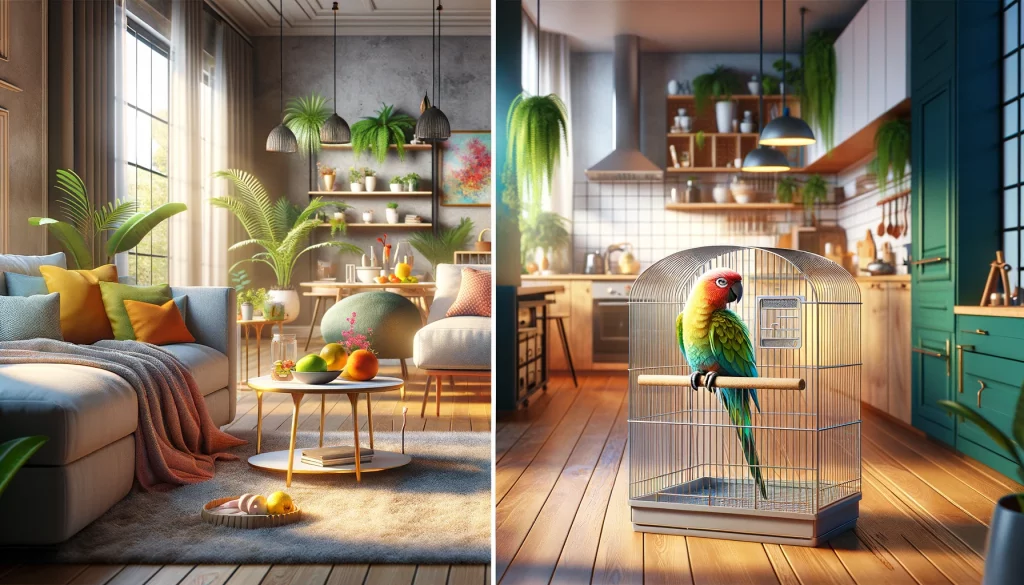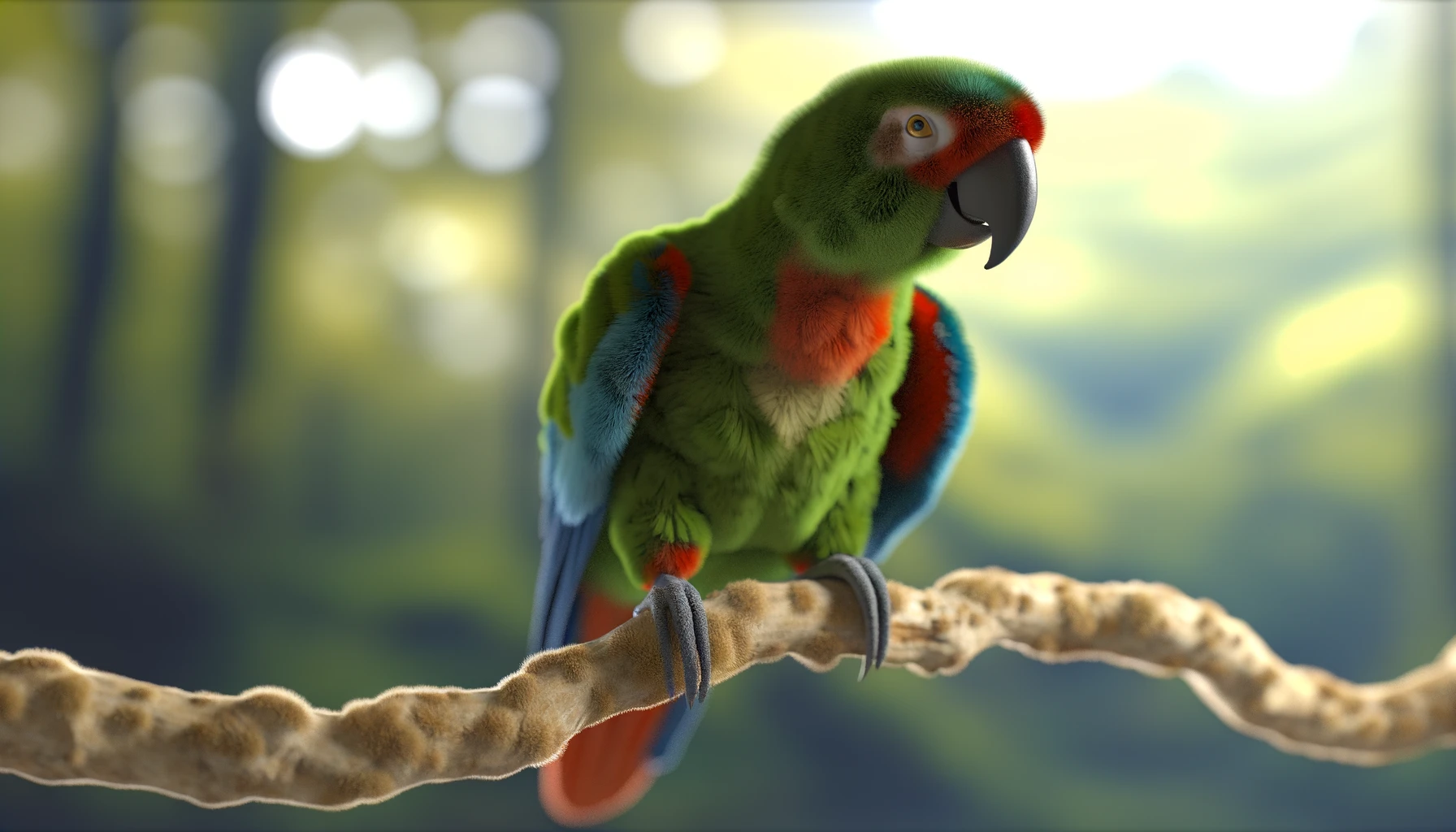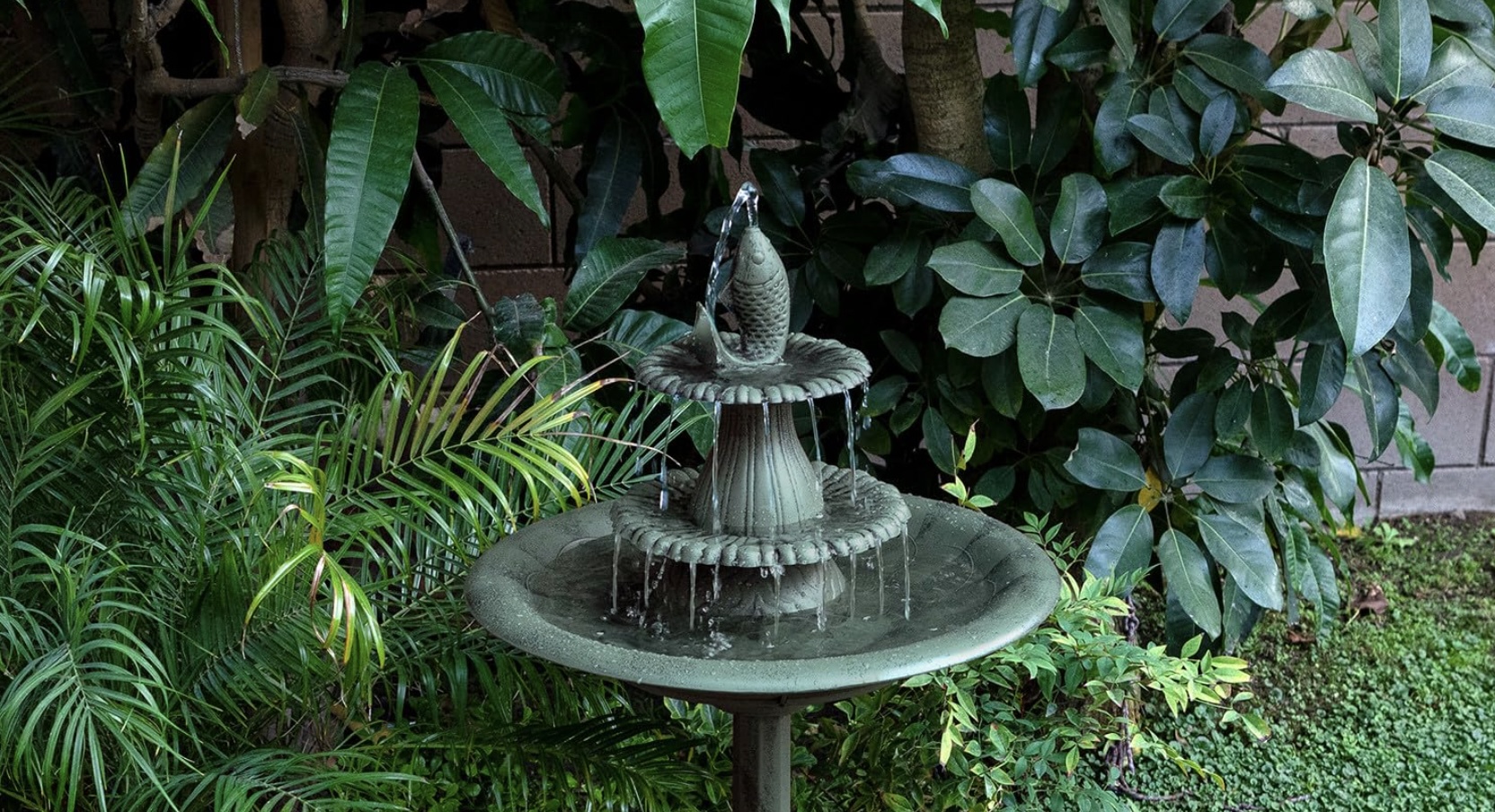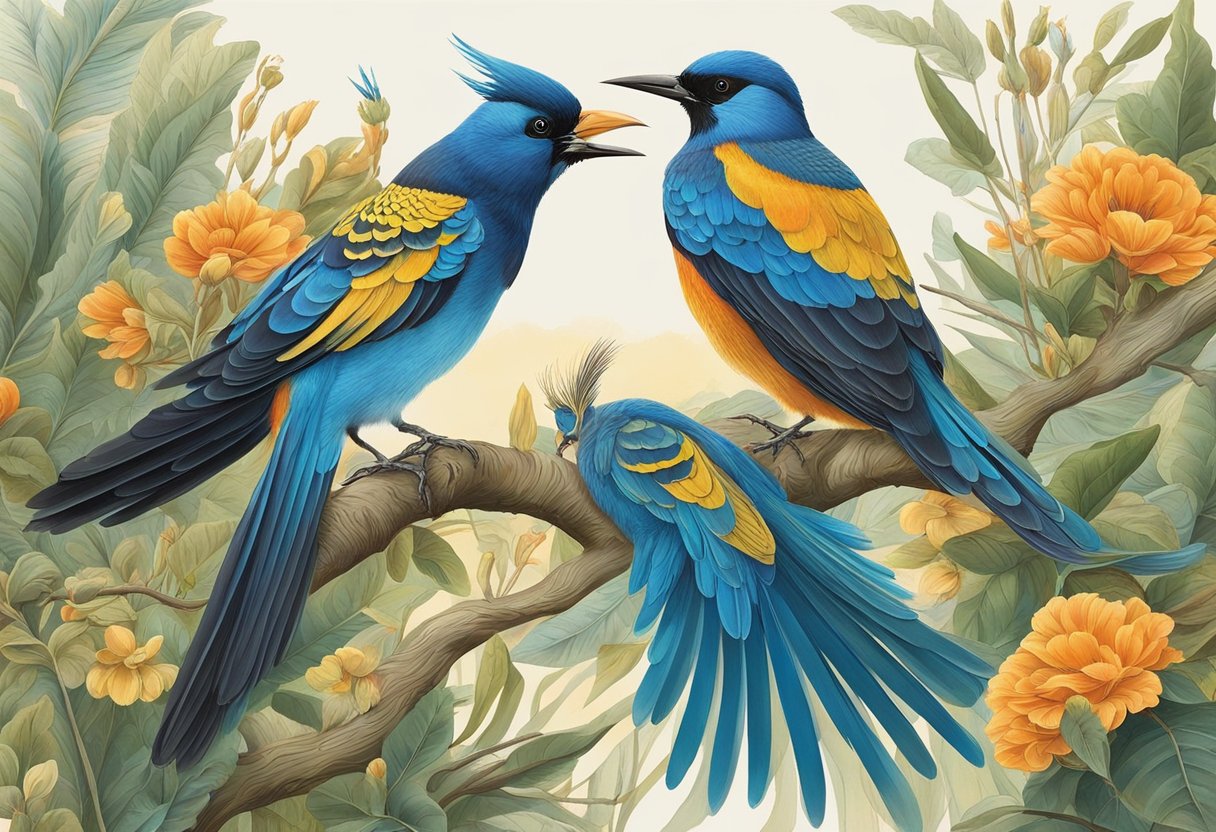Welcoming a pet parrot into your home is not just an exciting adventure but also a significant responsibility. These intelligent and vibrant birds bring a unique charm to any household, captivating owners with their ability to mimic speech and display affection. However, the decision to own a parrot should not be taken lightly. It requires a comprehensive understanding of their needs, behaviors, and the long-term commitment they entail. This article aims to guide first-time bird owners through the essential considerations before bringing a pet parrot into your life. From understanding different species to ensuring their health and happiness, we’ll cover all you need to know to make an informed decision. Whether you’re enamored by their colorful feathers or intrigued by their social nature, getting to know these feathered friends closely will help you prepare for the rewarding journey ahead.
Understanding Parrot Species and Their Needs
When considering a pet parrot, the first step is to familiarize yourself with the different species that are suitable for first-time owners. Parrots come in a vast array of sizes, colors, and temperaments, each with unique care requirements. Here are some popular species for beginners:
- Budgerigars (Budgies): Small in size but big in personality, Budgies are known for their sociable nature and ease of care. They are ideal for those with limited space.
- Cockatiels: With their distinctive crest and friendly demeanor, Cockatiels are another great option for first-timers. They require regular interaction but are generally easy to manage.
- Lovebirds: Small, affectionate, and often playful, Lovebirds can be a joy to have. They thrive in pairs, so consider getting two for companionship.
- Quaker Parrots: Known for their talking abilities, Quaker Parrots are intelligent and can form strong bonds with their owners. They need mental stimulation and social interaction.
Each of these species has specific needs:
- Space: Even small birds like Budgies need room to fly and exercise. A spacious cage and safe flying space in your home are essential.
- Diet: While seed mixes are commonly available, a balanced diet also includes fresh fruits, vegetables, and specially formulated pellets.
- Social Interaction: Parrots are social creatures. Regular interaction, whether it’s talking, playing, or training, is crucial for their mental health.
- Exercise: Providing toys and opportunities for physical activity helps prevent boredom and promotes well-being.
Understanding these needs is vital to ensure you can provide a suitable environment for your new feathered friend.
The Lifespan of Parrots: A Long-Term Commitment

One of the most significant aspects to consider before getting a pet parrot is their lifespan. Parrots are known for their remarkably long lives, with many species living for several decades. For instance, Budgies can live up to 15 years, Cockatiels around 20 years, and larger species like African Greys and Macaws can live well beyond 50 years. This longevity means that owning a parrot is not just a commitment for a few years but potentially for a lifetime.
Understanding the implications of their lifespan is crucial:
- Long-Term Care: As a parrot owner, you need to plan for their care throughout different stages of your life, including changes in living situations, family dynamics, and personal commitments.
- Estate Planning: It’s wise to include provisions for your parrot in your estate planning, ensuring they are cared for if they outlive you.
- Consistency: Long-lived parrots thrive on routine and stability. Regular feeding times, consistent interaction, and a stable environment are key to their well-being.
The decision to bring a parrot into your life should be made with a clear understanding of the long-term nature of the commitment. It’s not just about enjoying their company now, but ensuring their health and happiness for many years to come.
Space and Environment Requirements
Creating the right environment for your parrot is key to their physical and mental well-being. Parrots are active and intelligent birds that need space to move, play, and explore. Here are essential factors to consider in setting up their living space:
- Cage Size and Design: Choose a cage that is spacious enough for your parrot to stretch its wings and move around freely. For small species like Budgies and Lovebirds, a cage of at least 18″x18″x24″ is recommended. Larger parrots will require significantly more space. Ensure the cage design is safe, with appropriate bar spacing to prevent escape or injury.
- Placement of the Cage: Position the cage in a well-lit area away from direct sunlight and drafts. It should be in a place where the bird can observe and interact with family activities but also have quiet time when needed.
- Enrichment: Parrots are intelligent and need mental stimulation. Equip their cage with:
- Various types of perches for foot health.
- A range of toys for chewing, foraging, and play.
- Mirrors and bells for additional stimulation (especially for single birds).
- Outside the Cage: Provide a safe area outside the cage where your parrot can exercise and explore under supervision. This can include designated playstands or safe, bird-proofed rooms.
- Safety: Remove any toxic plants, hide electrical cords, and ensure windows and doors are secure to prevent accidents or escapes.
Creating a stimulating environment is not just about physical health, but also about nurturing their curious and playful nature. Regular updates to their environment, including changing toys and rearranging perches, can help keep your parrot engaged and happy.
Diet and Nutrition: What to Feed Your Parrot
A balanced diet is crucial for your parrot’s health. Parrots in the wild have a diverse diet, and replicating this variety is important for their nutritional needs. Here’s what you should know about feeding your feathered companion:
- Pellets: High-quality pellets should form the basis of your parrot’s diet, as they are formulated to provide a balanced mix of nutrients.
- Fruits and Vegetables: Fresh fruits and vegetables are essential for providing vitamins and minerals. Safe options include apples (without seeds), bananas, carrots, and leafy greens. Introduce new foods gradually and in moderation.
- Seeds and Nuts: While loved by most parrots, seeds and nuts should be given sparingly as they are high in fat. They are best used as treats or for training purposes.
- Water: Fresh, clean water must be available at all times. Change the water daily and clean the water dish to prevent bacterial growth.
- Foods to Avoid: Some foods are toxic to parrots and must be avoided, including avocado, chocolate, caffeine, and alcohol. Also, avoid foods high in fat, salt, and sugar.
- Supplements: Depending on your parrot’s specific needs, vitamin and mineral supplements may be necessary. Consult with a veterinarian for tailored advice.
Remember, a healthy diet is not just about the right foods but also about how they are offered. Encourage natural foraging behavior by using food puzzles or scattering food in their cage to stimulate their minds and keep them active.
Behavior and Training: Building a Bond with Your Parrot
Parrots are not only beautiful and intelligent but also emotionally complex creatures. Understanding their behavior and investing time in training are key to building a strong, trusting relationship with your parrot. Here are some insights and tips:
- Understanding Parrot Behavior: Parrots are social animals and can exhibit behaviors like vocalizing, chewing, and playing. Learning to interpret these behaviors is important. For example, a parrot might scream for attention or out of boredom.
- Training Techniques: Training should be based on positive reinforcement. Reward desired behaviors with treats, praise, or playtime. Start with simple commands like ‘step-up’ (getting them to step onto your hand) and gradually move to more complex tricks.
- Regular Interaction: Daily interaction is essential for socializing your parrot. Spend time talking, playing, and engaging in activities together. This not only strengthens your bond but also provides the mental stimulation they need.
- Handling and Socialization: Gently handling your parrot daily will help them become comfortable with human contact. Socialization with different people and exposure to new, safe environments can also be beneficial.
- Dealing with Behavioral Issues: If your parrot develops behavioral issues like biting or feather plucking, consult a veterinarian or a bird behaviorist. These can be signs of stress or illness.
Remember, every parrot has a unique personality. Patience and consistency are key in training and bonding with your feathered friend.
Health and Wellness: Regular Care and Veterinary Needs

Maintaining the health and wellness of your parrot is paramount. Regular care and veterinary check-ups play a vital role in ensuring your parrot lives a long, healthy life. Here are some key aspects to consider:
- Routine Veterinary Visits: Regular check-ups with an avian veterinarian are crucial. These visits can help in early detection and treatment of potential health issues.
- Common Health Issues: Be aware of common health problems in parrots, such as respiratory issues, feather plucking, and obesity. Understanding the signs of these conditions can help in timely intervention.
- Mental Health: Parrots are intelligent and emotional creatures. Mental health issues like boredom, depression, and anxiety can manifest in various ways. Providing mental stimulation through toys, interaction, and training is essential.
- Diet and Exercise: A balanced diet and regular exercise are key to preventing many health problems. Ensure your parrot has space and opportunity for physical activity.
- Hygiene: Regular cage cleaning and maintaining hygiene are crucial to prevent infections. Also, consider providing a water dish or a bird bath for your parrot to enjoy bathing, which is important for feather health.
- Emergency Preparedness: Have a plan for emergencies, including knowing the location of the nearest avian vet and having a first-aid kit for birds.
By proactively managing your parrot’s health and wellness, you can ensure they remain a happy and healthy companion for years to come.
Costs Involved in Parrot Ownership
Owning a parrot involves various expenses, both initial and ongoing. Being financially prepared for these costs is crucial for the well-being of your pet. Here’s a breakdown to help you budget effectively:
- Initial Costs:
- Purchase Price: This varies widely depending on the species. While some parrots like Budgies are relatively inexpensive, others can be quite costly.
- Cage and Setup: A good quality cage, perches, toys, and initial supplies can add up. Don’t skimp on the cage, as it’s your parrot’s primary living space.
- Veterinary Checkup: An initial health checkup is essential to ensure your new pet is healthy.
- Ongoing Costs:
- Food: High-quality pellets, fresh fruits, and vegetables contribute to regular food expenses.
- Toys and Accessories: Parrots need a variety of toys for mental stimulation, which need to be replaced regularly.
- Veterinary Care: Routine check-ups and potential medical treatments should be budgeted for.
- Insurance: Consider avian pet insurance to cover unexpected health issues.
- Unexpected Expenses:
- Emergency Veterinary Care: Illness or injury can lead to significant unplanned expenses.
- Cage or Accessory Replacement: Over time, you may need to replace or upgrade parts of your parrot’s habitat.
While parrots bring immense joy and companionship, it’s important to realistically assess whether you can meet these financial commitments before bringing one into your home.
Conclusion: Are You Ready for a Parrot?
In conclusion, getting a pet parrot is a decision that should be made with careful consideration of various factors. Understanding the needs of different parrot species, preparing for a long-term commitment, creating a suitable living environment, maintaining a balanced diet, engaging in behavior and training, ensuring regular health care, and being financially prepared are all crucial. If you’ve thoughtfully considered these aspects and are ready to commit, a parrot can be a wonderfully rewarding companion, bringing joy and color to your life for many years.
Remember, the journey of parrot ownership is as challenging as it is rewarding, requiring patience, understanding, and a lot of love.



